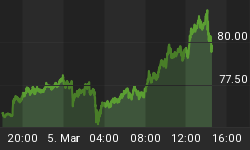Holders of the Euro currency should be glad that the Troika is finally doing something besides just making more loans, printing more money and monetizing more debt--unlike what the Treasury and Federal Reserve is in the habit of doing. For me, this has to be positive for the Euro in the long term because the ECB is not expanding its balance sheet, while the Fed is rapidly expanding the U.S. monetary base.
When institutions are insolvent somebody is going to get hurt and there are no painless solutions. Either its creditors take the direct hit; or all holders of the currency must suffer through the central bank's dilution of its purchasing power. This is true on both sides of the Atlantic. At least those in Cyprus who placed money in an insolvent institution and above the safety threshold provided by government will share in the burden. Doesn't capitalism necessitate that the process of creative destruction be allowed to occur?
Large depositors of Cyprus Popular Bank, known as Laiki, will take a haircut and it will serve as the paradigm for the rest of Europe's insolvent banks. The only real danger would have been if the EU forced those depositors to take a hit below the insured level. That could have caused a run on the Euro and European banks, but that was thankfully avoided. However, this doesn't fix the problems evident in European banks or economies.
The EU is simply setting the tone for the future in that more banks will go under and not all creditors and depositors will be made whole. Therefore, expect more depositors to lose their money. But the important point here is that future bailouts from the IMF, ECB and EU will also involve some deleveraging from the private sector. And that is several steps towards capitalism ahead of the U.S.
We shouldn't forget that when the U.S. had its financial crisis in 2008, our government--unlike what the Troika is trying to accomplish now in Europe--guaranteed all bank debt and actually expanded deposit insurance provided by the FDIC. Shouldn't holders of Euros find some long-term solace that their central bank is taking a stand against endless money printing?
It should also be noted that Cyprus' debt to GDP ratio is about 127% and the U.S. only carries a slightly less burden of 107%. Therefore, expect the high probability of massive currency depreciation and bailouts needed here once our interest rates rise. This will not bode well for the dollar in the long term and will be a strong catalyst to send gold prices higher.
















